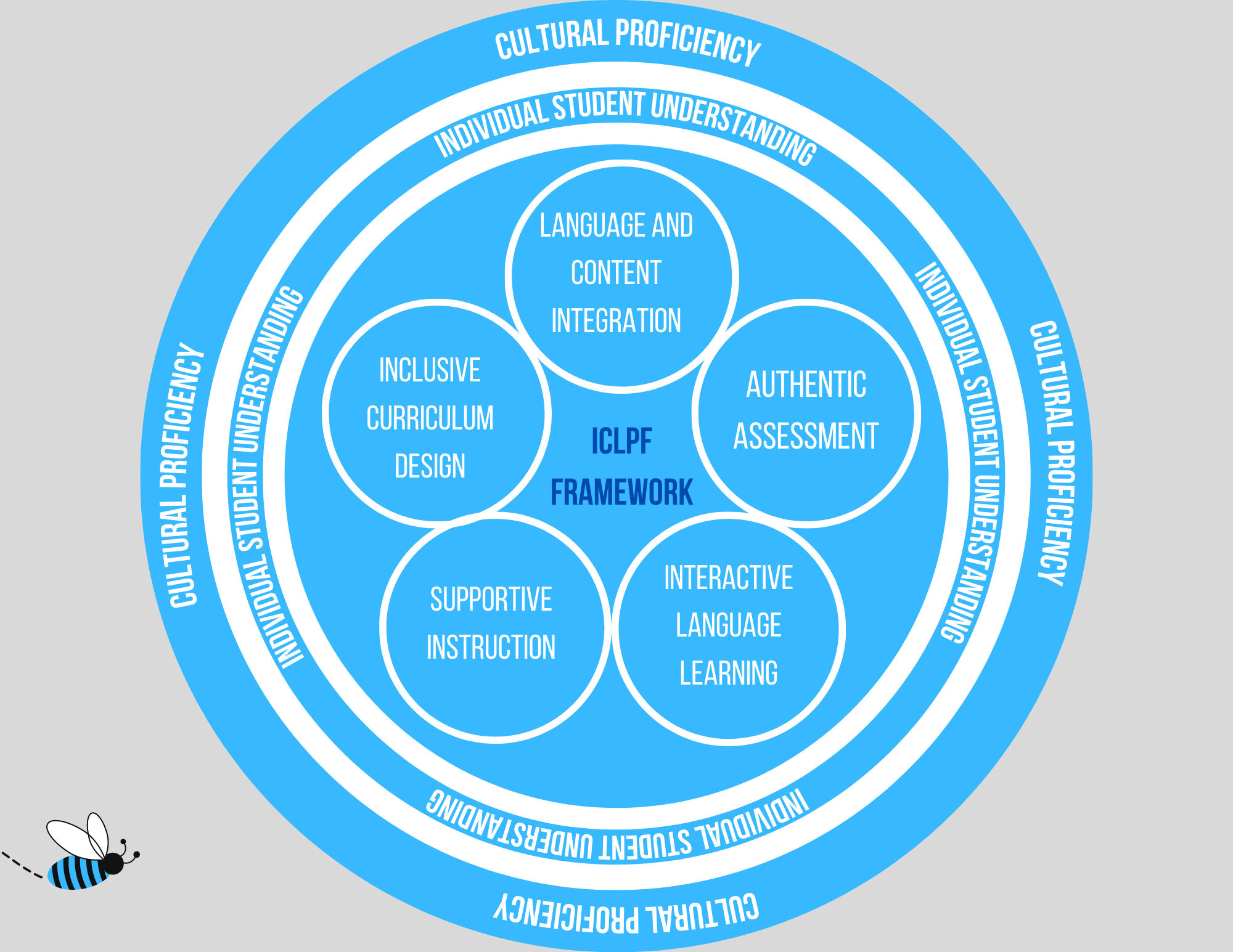Integrated Cultural Language and Proficiency Framework
The Integrated Cultural Language and Proficiency Framework (ICLPF), created by Dr. Kelly B. Forbes, is a comprehensive model designed to enhance language acquisition while fostering cultural proficiency and equitable education for PK-12 students. This framework blends effective strategies and practices, combining a deep understanding of students' identities, explicit language objectives, culturally responsive teaching, scaffolded instruction, and more to create a holistic approach that addresses linguistic, cognitive, socio-cultural dimensions, and individual needs.
Understanding the Framework
ICLPF Overview: The Integrated Cultural Language and Proficiency Framework (ICLPF) enriches language acquisition, cultural proficiency, and educational equity by integrating language learning, culturally responsive teaching, and a deep understanding of each student, fostering a thriving academic, linguistic, and cultural community.
Cultural Proficiency: Anchoring in Lindsey & Lindsey's (2016) framework, ICLPF cultivates an inclusive classroom environment, celebrating diversity and promoting cultural responsiveness.
Individual Student Understanding: ICLPF underscores the significance of understanding each student's cultural background, interests, assets, strengths, and challenges, tailoring instruction to cater to their unique needs.
Language and Content Integration: ICLPF weaves language objectives into content instruction, utilizing culturally diverse materials to resonate with students' backgrounds and enrich learning experiences.
Inclusive Curriculum Design: The curriculum is thoughtfully crafted to incorporate various cultures, languages, and traditions, ensuring relevance and accessibility for all learners, regardless of language proficiency.
Supportive Instruction: With scaffolded teaching techniques and a gradual approach to language skill development, ICLPF ensures concepts are introduced, practiced, and applied in meaningful contexts.
Interactive Language Learning: Encouraging active language practice, peer discussions, and group projects, ICLPF promotes interactive learning experiences and facilitates deeper comprehension through translanguaging. Students and teachers are encouraged to work together to overcome language barriers.
Authentic Assessment: ICLPF employs assessments that align with language and content objectives, as well as language versus content objectives, and therefore, enabling students to demonstrate their mastery of content and language proficiency in real-world scenarios.

